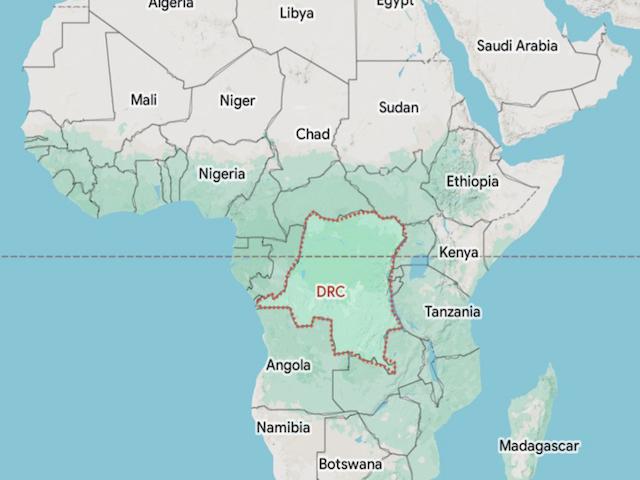As Israel grapples with the ongoing humanitarian crisis in Gaza, the government, led by Prime Minister Benjamin Netanyahu, has been actively pursuing a policy to facilitate the voluntary resettlement of Palestinians from Gaza. This initiative has gained momentum with reports of secret talks with several countries, including Congo, for potential absorption of these migrants.
Secret Diplomatic Efforts and International Responses
Earlier today, the Times of Israel revealed that Netanyahu’s coalition is conducting discreet contacts to relocate thousands of Gazans. A senior source in the security cabinet disclosed, “Congo has shown willingness to accept migrants, and discussions are ongoing with other nations.” This move comes as Gaza faces escalating challenges, exacerbated by the recent Israel-Hamas conflict, which erupted on October 7.
🇵🇸🇮🇱 ISRAEL TO PALESTINIANS: WE HEAR AFRICA IS NICE?
— Mario Nawfal (@MarioNawfal) January 3, 2024
Following UK’s lead of shipping their illegal immigrants to Africa, Israel is reportedly in talks with Congo and other nations to “relocate” Gaza’s residents displaced by the war.
Israel's Intelligence Minister warned of… pic.twitter.com/1GgRwb3GNO
Netanyahu’s Strategy and Political Backing
Netanyahu emphasized his commitment to this strategy at a Likud faction meeting. “Finding countries willing to absorb Gazans is our focus,” he stated, addressing Likud MK Danny Danon’s remarks about global discussions on voluntary immigration. The plan has garnered support within the government, particularly from the far-right parties like Religious Zionism and Otzma Yehudit, led by Finance Minister Bezalel Smotrich and National Security Minister Itamar Ben Gvir, respectively.
U.S. Criticism and Israeli Counterarguments
However, this policy has faced criticism, notably from the US State Department, which condemned Smotrich and Ben Gvir’s advocacy for resettlement as “inflammatory and irresponsible.” Smotrich rebuffed these criticisms, citing a purported 70% Israeli support for “encouraging voluntary immigration” to counter the threat from Gaza, where he claims “two million people wake up every morning with the desire to destroy the State of Israel.”
"The voluntary resettlement of Palestinians from Gaza is slowly becoming a key official policy of the government, with a senior official saying that Israel has held talks with several countries for their potential absorption."https://t.co/nxsVqOK5Ye
— Yishai Fleisher يشاي ישי פליישר 🕎 (@YishaiFleisher) January 3, 2024
Netanyahu’s Delicate Balancing Act
Despite these assertions, Netanyahu's office has previously distanced itself from Smotrich and Ben Gvir’s stance, asserting they do not represent official government policy, though Netanyahu himself has expressed support for population transfer.
Likud’s Unified Front on the Policy
Other prominent figures in Netanyahu’s Likud party have also championed this policy. Intelligence Minister Gila Gamliel, in a recent conference and internal discussions, described “voluntary migration as the best postwar solution,” foreseeing a Gaza bereft of municipal authorities and reliant on humanitarian aid post-conflict. Gamliel’s vision involves Israel severing ties with Gaza, expanding security buffer zones, and maintaining a naval blockade.
Political Landscape and Alternative Views
The proposal has seen various iterations and support within Israeli political circles. Danon, a leading advocate, outlined a five-step plan including demobilization, establishing security buffer zones, and promoting voluntary emigration. His views were partially echoed in a Wall Street Journal op-ed, co-authored with Yesh Atid MK Ram Ben Barak, though Ben Barak later clarified his stance amidst misunderstandings.
Danny Danon WSJ op-ed saying Gaza Palestinians should be taken in as refugees by countries around the world. He compares Israel-Palestine conflict to Syria civil war and says Palestinians should be taken in like Syrian refugees. Google translated from Hebrew. pic.twitter.com/P1BgjMv0Ne
— Philip (@rulesbasedworld) November 21, 2023
Regional and Global Implications
The security cabinet, set to discuss Gaza’s future post-conflict, is considering involving Saudi Arabia to absorb Palestinian workers, leveraging the Kingdom’s construction boom. This initiative is part of broader geopolitical dynamics, including Israel’s relationship with the Biden administration in the U.S., which, despite support in the Hamas conflict, has expressed concerns over Gaza’s postwar planning.
Conclusion
As the Israeli government navigates complex domestic and international landscapes, the proposal for the voluntary resettlement of Gazans represents a multifaceted approach to a longstanding crisis. While supported by many within the Israeli political spectrum, it faces significant challenges and criticisms, both domestically and internationally, underlining the complexity of finding sustainable solutions for the region.


